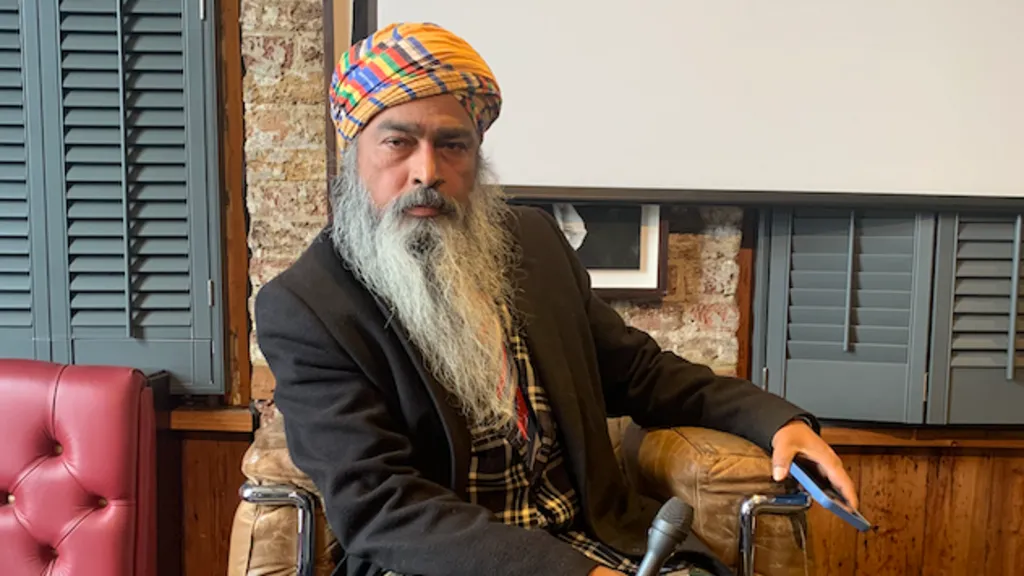Hunt for Bitcoin’s elusive creator Satoshi Nakamoto hits another dead-end
3 min read
Stephen Mollah is the latest person to claim to be the mysterious inventor of Bitcoin. BBC

Stephen Mollah is the latest person to claim to be the mysterious inventor of Bitcoin. BBC
Bitcoin has become a cornerstone of a two trillion-dollar cryptocurrency industry, traded by major investment firms and even recognized as legal tender in one nation. Yet, a profound mystery endures: the true identity of its enigmatic creator, Satoshi Nakamoto.
Despite numerous attempts to unveil Nakamoto, each has ended in failure. Most recently, a high-profile HBO documentary pointed to Canadian bitcoin expert Peter Todd as a potential Satoshi, but he promptly denied the claim, leading the crypto community to largely dismiss it.
The intrigue surrounding Satoshi Nakamoto is not merely academic; it stems from the profound influence this individual could wield in a rapidly evolving industry. Satoshi is not just a programmer but the original architect of Bitcoin, holding over one million bitcoins, making them a multi-billionaire given the currency’s soaring value. This wealth raises questions about anonymity and the implications of revealing such an identity.
Recently, anticipation grew when an announcement promised that Satoshi would finally reveal themselves at a press conference. Intrigued, I signed up, though it struck me as unusual to be charged for entry—a front-row seat was set at £100, with an additional £50 for unlimited questions and a whopping £500 to interview Satoshi on stage. I opted out of the fees.
Upon arrival at the Frontline Club, it was evident that excitement was tempered by skepticism. Only about a dozen reporters attended, and the venue even clarified that it merely provided a space without endorsing the event. The atmosphere grew increasingly doubtful when it emerged that the organizer, Charles Anderson, and the supposed Satoshi were embroiled in a legal dispute regarding fraud claims linked to assertions of being Nakamoto.
Things took a turn for the absurd when a man named Stephen Mollah stepped forward, declaring, “I am Satoshi Nakamoto, and I created Bitcoin on Blockchain technology.” For the next hour, however, he failed to substantiate his claims, leaving reporters growing more incredulous. Mollah promised to unlock and interact with the first bitcoins—an act that would serve as irrefutable proof—but he ultimately did not deliver.
As I departed, it was clear that yet again, the quest to unmask Satoshi had hit a dead end.
The list of alleged Satoshis is extensive. In 2014, Newsweek identified Dorian Nakamoto, a Japanese-American living in California, as the creator, but he denied the allegations, which were subsequently debunked. A year later, Australian computer scientist Craig Wright was named as Satoshi, yet he has oscillated between denial and admission without providing concrete evidence. The High Court in London ruled that Wright was not the inventor of Bitcoin. Even tech mogul Elon Musk has been implicated, only to deny the claims after speculation arose from a former employee.
This raises an important question: does Satoshi’s identity truly matter? The cryptocurrency market has reached a valuation greater than that of Google, which raises eyebrows about how a similarly influential technology could lack clarity regarding its founder.
Yet, there may be a rationale for Satoshi’s continued anonymity. With an estimated bitcoin stash valued at around $69 billion, the scrutiny on their life and character could be overwhelming. Peter Todd, previously named in the HBO documentary, has expressed fears for his safety due to unwanted attention.
Many within the crypto community embrace the mystery. Adam Back, a core developer and another potential candidate for Satoshi, recently stated, “No one knows who Satoshi is, and that’s a good thing.” Bitcoin podcaster Natalie Brunell argues that Satoshi’s anonymity is crucial. “By concealing their true identity, Satoshi ensured that Bitcoin wouldn’t have a leader whose personal agenda could influence the protocol,” she explained. This decentralization fosters trust in Bitcoin as a system, rather than reliance on a single individual.
Conversely, Carol Alexander, a finance professor at Sussex University, argues that the ongoing circus surrounding Satoshi distracts from more pressing discussions about the potential impact of cryptocurrencies on the economy.
As I left the Frontline Club, it was difficult to reconcile the oddities of the press event with any clear takeaway. For now—perhaps indefinitely—the search for Satoshi Nakamoto continues, a tantalizing mystery that fuels the fascination surrounding Bitcoin and its revolutionary potential.